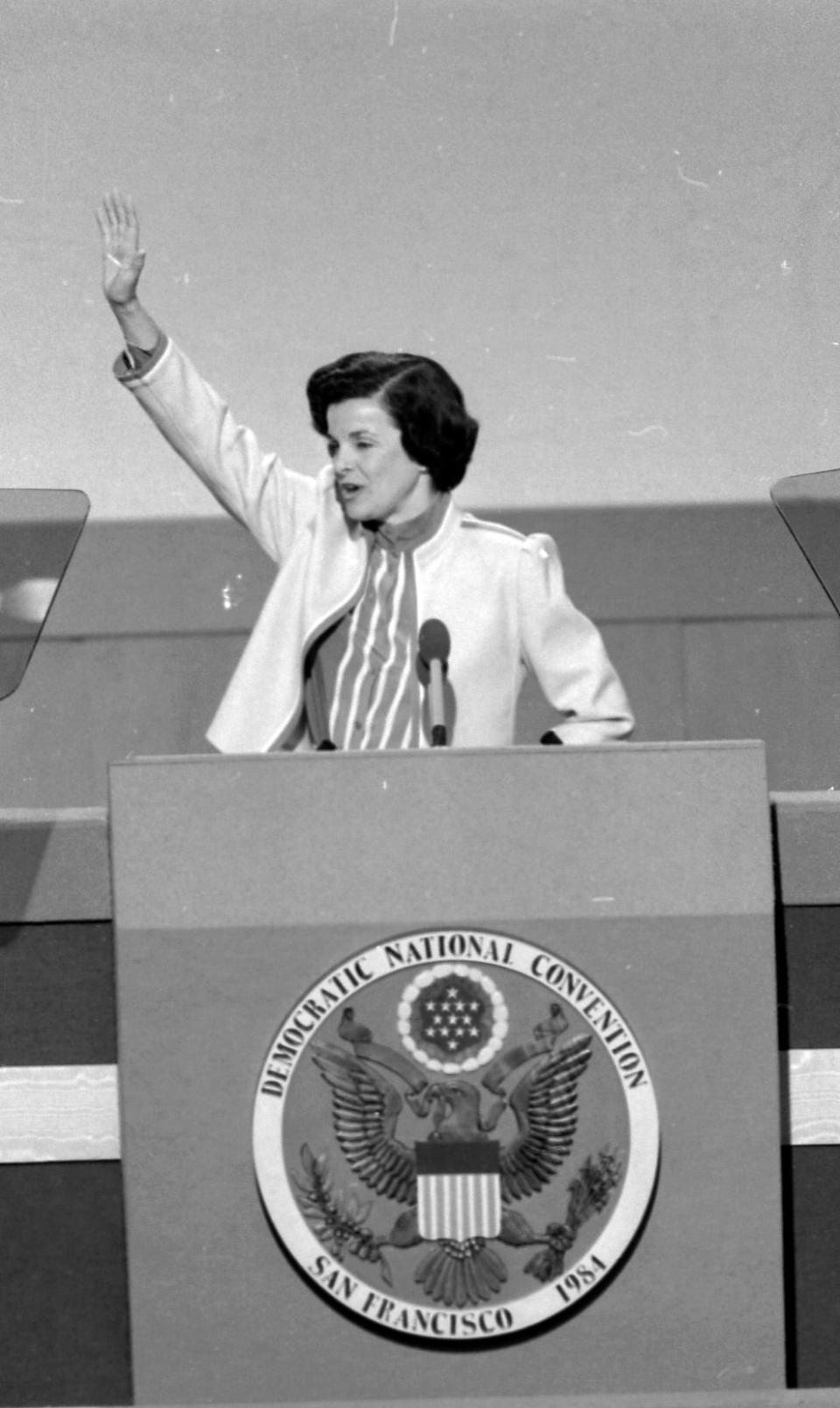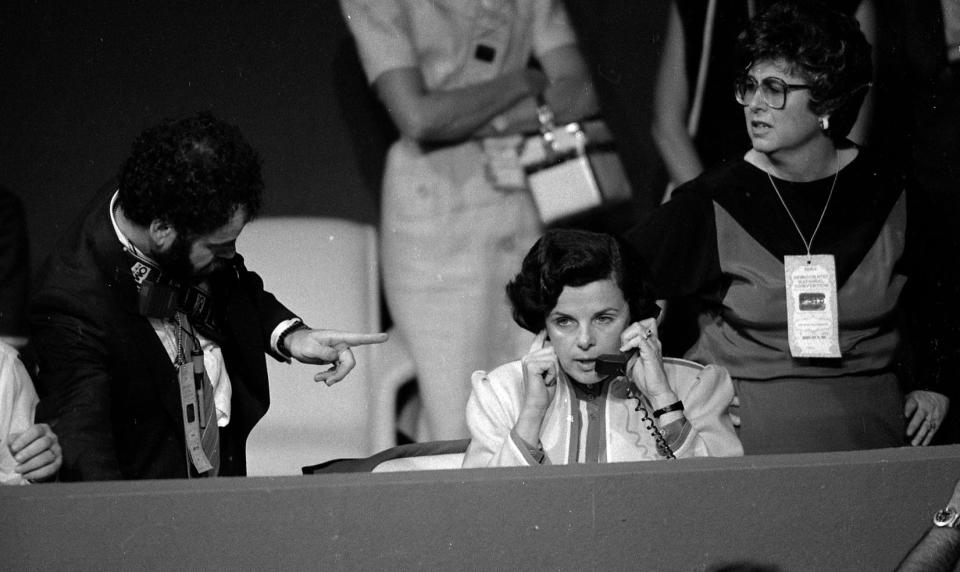I met Dianne Feinstein at the 1984 DNC convention. Since then, she's changed politics for women
- Oops!Something went wrong.Please try again later.
- Oops!Something went wrong.Please try again later.
- Oops!Something went wrong.Please try again later.
- Oops!Something went wrong.Please try again later.
The 1984 presidential election was a disaster for Democrats, but the San Francisco convention that year proved to be something of a launching pad for two of the most groundbreaking women in American politics.
Dianne Feinstein was then the city's mayor and Nancy Pelosi was a political volunteer who was leading its host committee. By the time Feinstein died Thursday at age 90, nearly four decades later, she had served longer in the U.S. Senate than any other woman in history, and Pelosi had been elected as the first, and so far only, female speaker of the House.
Covering that convention for Newsday was the first time I had met either one of them. Even then, it was impossible to miss their energy and their competence, even in those supportive roles. The nuts-and-bolts of that political gathering were better run than the Democratic presidential campaign that followed.
The female star of the convention, of course, was New York Rep. Geraldine Ferraro, picked by presidential nominee Walter Mondale as his running mate and the first woman on a major party's national ticket. In November, Democrats suffered a devastating 49-state defeat, but Feinstein and Pelosi eventually would eclipse the political firepower of the New York congresswoman − indeed, of Mondale, too.

The convention raised the two women's profiles and boosted their reputations for the remarkable political careers that would follow.
Feinstein was the other finalist on Mondale's list of possible vice presidents, and she had hoped to get the nod. A senior Mondale strategist told me then that one major reason they decided against her were fears that her husband's extensive business interests would create political complications − a bit of an irony, because the business interests of Ferraro's husband ended up doing just that.
At the time, Feinstein was the first female mayor of San Francisco, and she would score a string of more "firsts" for women in American politics. First female senator from California. First female chair of the powerful Senate Rules Committee and Senate Intelligence Committee. First woman to serve as ranking Democrat on the Senate Judiciary Committee.
What's more, she made her mark not on the issues traditionally associated with women like education and child care but also on those that had traditionally been the domain of men. She wrote the 1994 ban on assault weapons, and she led the investigation into U.S. intelligence agencies for torture and abuse of prisoners in the aftermath of 9/11, an inquiry that put her at odds with a Democratic president, Barack Obama.
In recent years, Feinstein's physical and mental health began to decline, the source of concern and alarm even among her friends and allies. By the end, she had become a frail figure, an image that threatened to overshadow the tough and determined trailblazer she had been.

In her heyday, she had been a force of nature. Veteran California political reporter Jerry Roberts used one of her signature quotes as the title of his biography of her: "Never Let Them See You Cry." She was determined and persistent, losing two bids for mayor before being elected to the Board of Supervisors and then becoming mayor after Mayor George Moscone was assassinated.
She ran for governor in 1990 and lost, then two years later won a seat in the Senate that she would hold for six terms.
"The first woman mayor of San Francisco, coming into office under sad circumstances, but leading us with great dignity," Pelosi said, choking with emotion Friday as she led a tribute and moment of silence on the House floor, surrounded by other members of the California delegation. "Her legacy will be a long one."

This article originally appeared on USA TODAY: Dianne Feinstein, tough and resilient, scored a string of firsts

